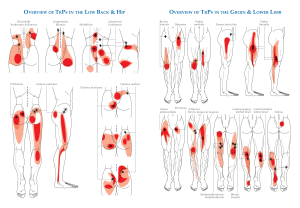Exploring Some Overlooked Causes Of Back Pain

Category: | Author:
If you fall off a ladder or tweak something in your back while you’re carrying a heavy box, it’s pretty easy to tell why your spine is hurting. However, oftentimes identifying underlying contributing factors to your spine discomfort isn’t always that easy. If you can’t figure out why your spine is in pain, it won’t be easy to make the necessary changes to put an end to your discomfort. In today’s blog, we explore some of the overlooked contributing factors to your spine pain.
Oft-Overlooked Causes Of Back Pain
If you are dealing with minor or mild back discomfort and you can’t figure out why your spine has started to hurt, we recommend taking a closer look at some of these factors:
- Your Shoes – The shoes you wear can really affect how weight is distributed in your spine and down your lower body. Most flat-style shoes won’t cause major issues for your spine, even if they aren’t all that supportive, but you’ll want to be mindful of shoes with raised heels. A raised heel will change your entire posture, pushing your hips and lower back forward, changing the stress on your spinal column. Over time, this can expedite spinal disc degeneration and increase your risk of spinal curvature disorders like lordosis.
- Stress – We’ve talked about the impact of stress on your spine , but mental and emotional stress can have physical implications for your spine. Most commonly, this stress is felt in your neck region. Stress can contribute to muscle tension, and chronic muscle tension in your neck can lead to pain, muscle weakness and headaches. If your life has been stressful lately, it may be contributing to your spinal discomfort. Work to eliminate sources of stress in your life and find healthy ways to manage stress (like through exercise or meditation) when it manifests.
- Mattress – Your bed may feel pretty comfortable, but that doesn’t mean it always provides great support for your spine. If you can’t remember the last time you rotated or upgraded your mattress, it may be time to reevaluate your sleeping quarters. We spend roughly one third of our lives on a mattress, and if it’s not doing a good job keeping our spine in a healthy alignment, you can wake up feeling fatigued and sore. Most people find that overly soft or overly firm mattresses don’t provide the best type of support, so find something in the middle that helps guide your spine into a healthy position as you sleep.
- Diet and Weight – Your diet can help or hurt the health of your spine, so it’s important that you take a closer look at what you’re putting in your body. Nutrients like vitamin D and calcium are crucial for bone formation and bone strength, and if you’re not regularly getting enough of these nutrients, you may be at risk of osteopenia or osteoporosis. A poor diet can also lead to weight gain, and , being 20 pounds overweight puts an additional 80 pounds of stress on your spine. Losing just a little weight can take a significant burden off your spine.
- Dehydration – It’s certainly possible that your back discomfort is tied to your hydration levels. When we’re dehydrated, blood vessels constrict and nutrient-rich blood can’t make it to key structures as easily, leaving them deprived of oxygen and important vitamins and minerals. This can end up expediting the disc degeneration process and contributing to issues like muscle cramps and back spasms.
- Your Seated Posture – Finally, although your seated position may not seem all that stressful on your back, your muscles are hard at work handling this static pressure until you get up and move. If you’ve been doing a lot of sitting, there’s a chance that your back pain is tied to this inactivity and your seated posture. Regularly evaluate your spinal positioning when you’re sitting down, and break up extended seated periods with movement to take some stress off your spine.
If you’re still not sure what’s contributing to your spine pain, or you want some help developing an individualized treatment plan, reach out to Dr. Sinicropi and the team at The Midwest Spine & Brain Institute today at (651) 430-3800.
Related




